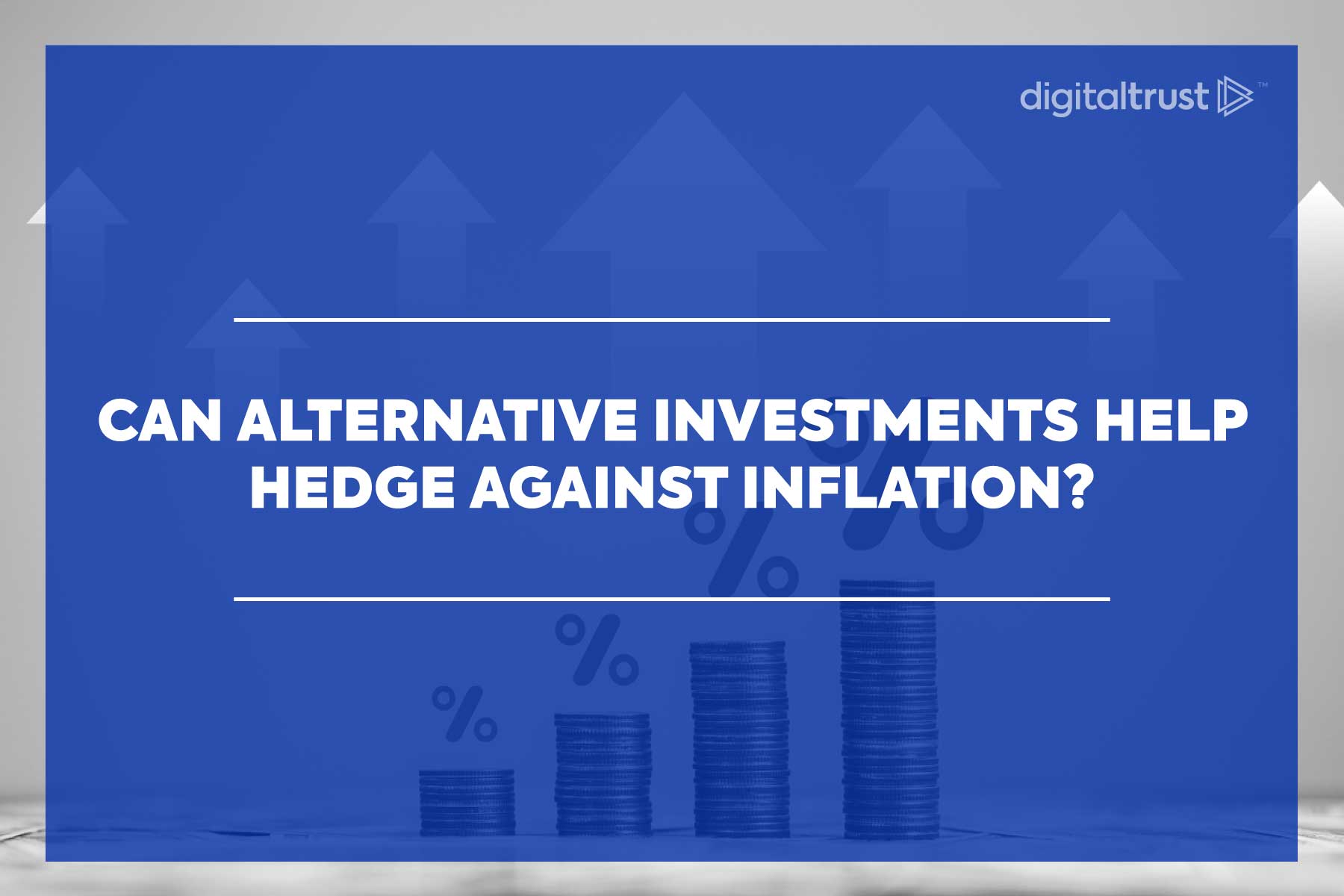With inflation at multi-decade highs and prices increasing across the board, everyone seems to be talking about the impact of inflation. What’s more concerning is how inflation will affect the economy and your investments. The market has dropped significantly, but inflation has not gone away — so how do you prepare your portfolio to be hedged against inflation if this is just the first leg down?
Traditional analysts recommend investing in commodities, gold, bonds, and other alternative assets, but are they really inflation-proof? Gold has long been touted as an inflation hedge, but expert Andrew Bloomenthal recommends bonds instead. He cites that gold prices fluctuate too much and that the return on bonds with increasing rates is a better alternative.
The traditional market isn’t the only one available to consider anymore. There are some alternative assets investors can consider for an IRA to hedge against inflation.
Hedging Your IRA Against Inflation with Alternative Assets
Investing during high inflation can be tricky because there are many moving parts: Rising costs, consumer demand, and governmental reaction are only the beginning. These parts can impact how assets grow and fluctuate.
Rental Properties
In an inflationary environment where rates are rising, there is a chance that real estate prices could drop, but at the same time, rental costs increase.
So, rental properties offset the cost of inflation with higher rents. The good news is that investors can own rental property in an IRA.
Using real estate as a long-term investment may provide a solid IRA infrastructure since housing prices tend to rise over time. Adding rental property to a portfolio may enhance the investment with the income made from rent.
Investors who don’t want the hassle of dealing with tenants can invest in commercial real estate or contribute to a property as a partner or through a crowdfunding site.
Businesses
In addition to real estate, investors can utilize an IRA to contribute to and realize returns from many types of businesses not listed on the stock exchange. This may not seem inflation-proof at first, but thinking strategically, there are plenty of business types that stand a good chance of beating inflationary pressures.
For example, traditional analysts recommend investing in commodities during times of high inflation. Investors can consider companies involved in commodity production or alternative energy production to meet this requirement. Other inflation offsetting industries and business structures include banking, supply chain logistics, and — to a degree — processing and manufacturing.
Cryptocurrency
You can consider a cryptocurrency investment as similar to investing in a business because each cryptocurrency supports or represents a project. There are cryptocurrencies backed by gold and other commodities. Some cryptocurrencies are also created to prove liquidity, and some are made specifically for trading real estate and other smart contracts.
While all cryptocurrencies are not inflation-proof, many projects are disconnected from the mainstream monetary system, shielding them from the effects of inflation. Take EOS, for example; the EOS token supports EOS.IO, a platform for decentralized app development with extremely fast transaction times. The price of the cryptocurrency will likely rise as more app developers use the platform to create and run their apps — giving it the characteristics of a commodity.
Adding Alternative Investments to My IRA
Digital Trust offers ways for retirement savers to add a wide assortment of alternative assets to their portfolios, including real estate, LLCs, precious metals, and more.
Making the switch or opening an account is easy, even if you don’t currently have a self-directed IRA. Simply contact the knowledgeable staff at Digital Trust, and you will be on your way to adding inflation offsetting assets to your IRA in less than a week. Visit Digital Trust to learn more today!



